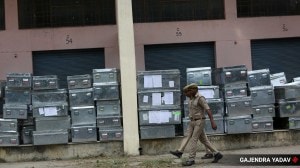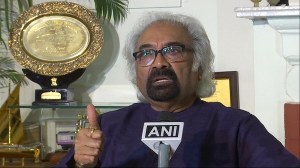- India
- International
Swachh Bharat draws flak from noted architect, says Indian cities don’t need absolute solutions
Mehrotra said that Indian cities were more 'kinetic' in nature as opposed to them being widely perceived as 'static'.
 Photo for representational purpose.
Photo for representational purpose.
Noted conservation architect, urbanist Rahul Mehrotra who is also an alumnus of Ahmedabad- based CEPT University on Saturday suggested that India urbanists and planners ‘imagine transitions’ rather than making ‘absolute solutions’ for Indian cities. As an example of this, he mentioned the Swachh Bharat campaign and the Gujarat International Finance Tec-City (GIFT) located near Ahmedabad which drew flak from the architect who said that GIFT city had become a great ‘symbol of absolutes’. Mehrotra who was speaking at the 1st Shrenik Kasturbhai Memorial Lecture on “Ephemeral Urbanism- Learning from the Kumbh Mela” at LD Institute of Indology said that Indian cities were more ‘kinetic’ in nature as opposed to them being widely perceived as ‘static’.
Showing a slide of PM Modi flagging off the cleanliness drive, followed by figures of open defecation occurring in countries globally, Mehrotra said, “This is one of the most noble kind of gestures our PM has made, construct a household toilet by 2019 – we are not going to solve the problem this is going to be an absolute disaster, a complete disaster because it can’t happen…We have here a mapping of open defecation around the world, India is way ahead of even Africa. We are the worst in terms of numbers of open defecation, so it is a very good aim but its an absolute way of looking at it because what this results in is we are not going to get a toilet for everyone in that time 3 years because we are not even going to get those slums reorganized in 3 years so how can you get a toilet there? So what has happened is that we are prefabricating millions of toilets very week and a truck goes around and drops it in front of everyone’s houses in the village. It then gets used for storage of grains and different things – as it’s a room. Therefore the transitions becomes important, community toilets in those areas become a way of transitioning.”
Making a strong case for ‘ephemeral urbanism in planning Indian cities through an academic study of the organisation of the Kumbh Mela in Allahabad that he was part of- Mehrotra said, “The Kumbh demystifies and presents a kind of distilled narrative surrounding the deployment of the city – issues that are negotiated in this form of urbanism are as diverse as memory, geography, infrastructure, sanitation, public health, governance, and ecology…Ephemeral Urbanism as an idea for us planners acknowledges the need for re-examining permanent solutions as the only mode for the formulation of urban imaginaries and instead imagining how new protocols that are constantly reformulated, readapted and re-projected reacts to permanent state of crisis that I believe our cities are in. These cases (of Kumbh) help us recognise the potential of such discussions in constructing new imaginaries of urban environments in the future and specially in India.”
Apr 24: Latest News
- 01
- 02
- 03
- 04
- 05







































